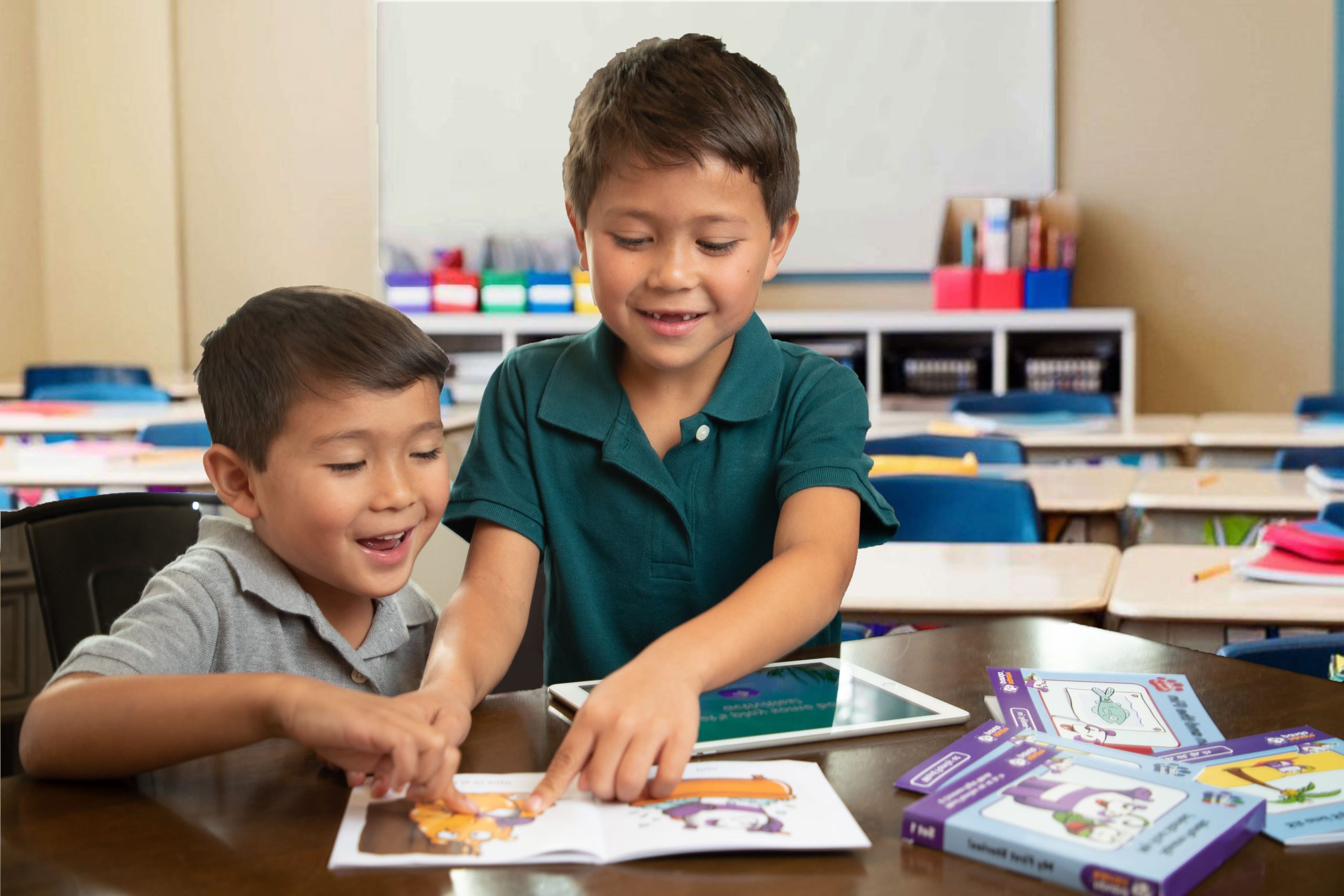
Situated outside of San Francisco, the Mountain View Whisman School District (MVWSD) has a highly diverse socioeconomic student population. Of the district’s 5,344 students, 35 percent are socioeconomically disadvantaged and 24 percent are English language learners, with some 50 languages represented. Academically, early literacy had been one of the district’s most significant challenges.
In 2018, MVWSD Chief Academic Officer Cathy Baur was introduced to Square Panda, a multisensory, phonics-based early literacy tool that builds foundational reading skills. “I’m always careful when introducing new technology in our schools, but when I saw how it worked up close, I thought simply, ‘I wish I’d had this when I was teaching,’” Baur says.
Neuroscience-based, multisensory system
Square Panda is a research-based, multisensory phonics learning system inspired by the science of reading. The Square Panda Literacy System enhances any classroom tablet with a library of learning games, digital and print books, and a set of 46 physical Smart Letters that works with a Bluetooth playset to add a kinesthetic element to literacy learning. Each student’s gaming journey can be different, driven by an adaptive learning engine that provides the right level of challenges.
Through a cloud-based Teacher Portal, teachers can manage student profiles, monitor progress and identify instructional opportunities.
Pilot program shows promising results
MVWSD administrators first tested Square Panda in a pilot with kindergarten classes across five different schools, with 136 students in the test group using Square Panda playsets and another 204 serving as a control group. All students were tested on letter sounds immediately before and after a 12-week intervention period.
When it came to the 60 students identified as “struggling” prior to the pilot, there was a 13 percent gain in the number of students who moved up to “standards met” status. Of the 280 students who tested at grade level or higher prior to the pilot, an additional 7 percent moved up to “exceeding standards.”
“Seeing improvements in these scores correlated with the use of Square Panda, in addition to other classroom efforts, was obviously very exciting,” says Baur. “In addition, we noticed other positive impacts on students. Some teachers used the games to help build social-emotional skills, for example by allowing students to trade letters as they played,” Baur says. “It was also not uncommon to discover that highly distracted students could focus at length on the games. A number of teachers discovered they could use Square Panda as a learning incentive for other classroom activities.”
Looking to the future
MVWSD Superintendent Ayinde Rudolph says he was impressed by the results after the pilot program, and by how quickly students advanced. “Square Panda is a great tactile, multisensory way for our youngest students to build their letter and word recognition skills. Students gain skills at a faster rate,” Rudolph says.
MVWSD is now in the second year of a three-year research partnership with Square Panda, and the district is expanding the program to all kindergarten classes district-wide, while also beginning to use it in pre-K and special education classes. “We are highly encouraged by the first year’s results,” Baur says. “Our partnership has been very fruitful, and we look forward to reporting our future results.”
To learn more about Square Panda, go to squarepanda.com







